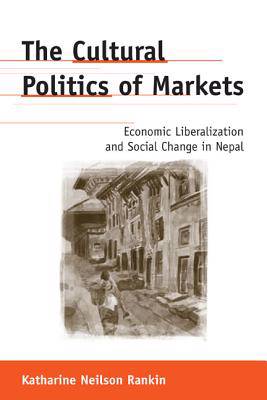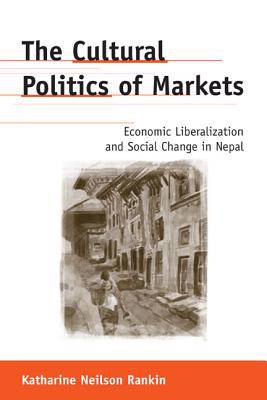
- Retrait gratuit dans votre magasin Club
- 7.000.000 titres dans notre catalogue
- Payer en toute sécurité
- Toujours un magasin près de chez vous
- Retrait gratuit dans votre magasin Club
- 7.000.0000 titres dans notre catalogue
- Payer en toute sécurité
- Toujours un magasin près de chez vous
The Cultural Politics of Markets
Economic Liberalization and Social Change in Nepal
Katharine Neilson RankinDescription
In a neoliberal era, when the ideology of the free market governs community development as much as international trade, a conflict between capital and tradition is inevitable. Issues such as the value ascribed to honour and social prestige are difficult to negotiate with economic opportunity. Using the example of a 'traditional' Nepalese market town, Katharine Neilson Rankin explores how economic liberalization has blended with local cultures of value.
Utilizing the ethnographic method of anthropology and the comparative and normative thrust of geography, Rankin undertakes a critique of neoliberal approaches to development. She demonstrates how market-led development does not expand opportunity, but rather deepens existing injustice and inequality, which is further exacerbated by planners - eager to implement market-led approaches - relying on naively idealistic notions of 'social capital' to expand poor people's access to the market. The Cultural Politics of Markets makes a clear case for a strategic merger between anthropological and planning perspectives in thinking about the issue of market transformation.
Spécifications
Parties prenantes
- Auteur(s) :
- Editeur:
Contenu
- Nombre de pages :
- 240
- Langue:
- Anglais
- Collection :
Caractéristiques
- EAN:
- 9780802086983
- Date de parution :
- 07-05-04
- Format:
- Livre broché
- Format numérique:
- Trade paperback (VS)
- Dimensions :
- 136 mm x 215 mm
- Poids :
- 390 g

Les avis
Nous publions uniquement les avis qui respectent les conditions requises. Consultez nos conditions pour les avis.






